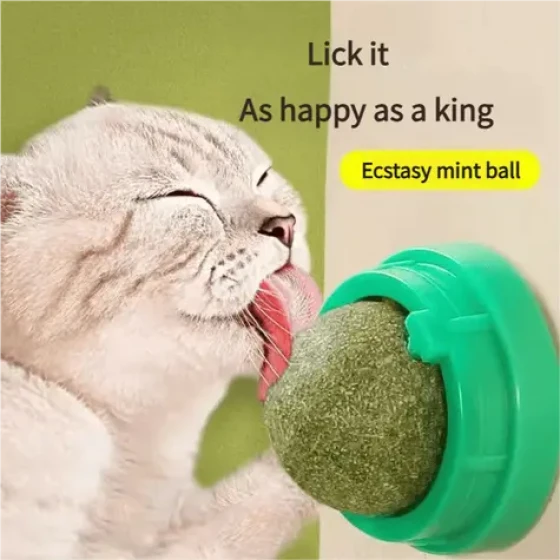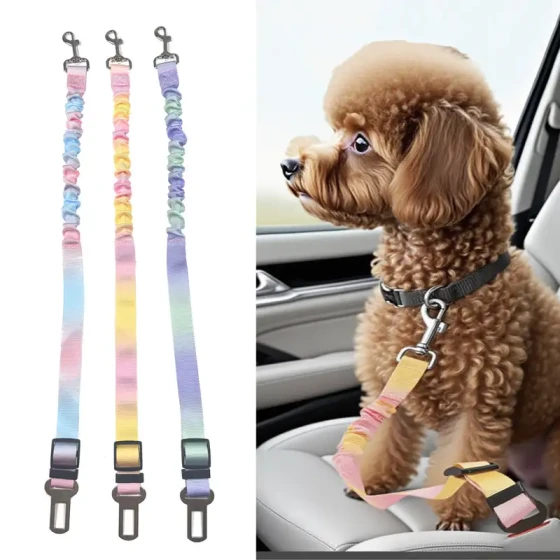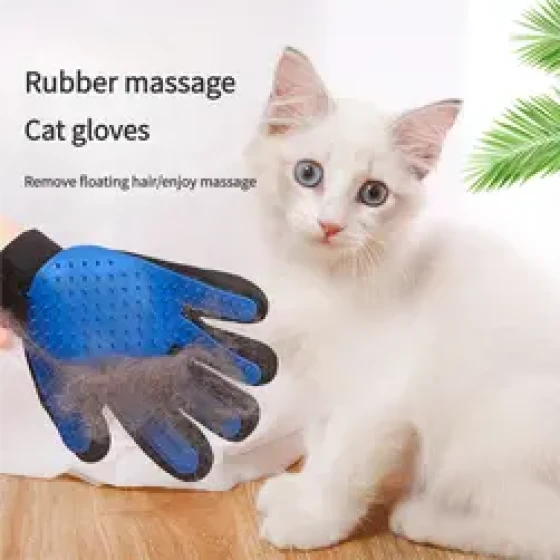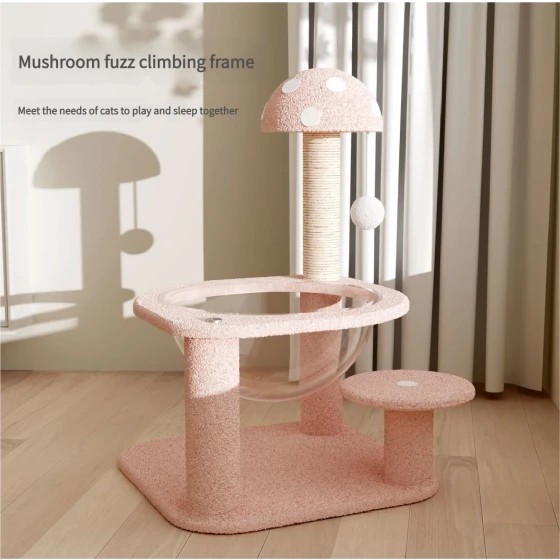What Foods Make Cats Gain Weight Easily_These Foods Make Cats Gain Weight Quickly and Need Caution
The round and chubby appearance of cats is indeed very cute, often jokingly called "happy fat" by cat owners. However, just like humans, excessive obesity brings many negative impacts on a cat's health and may even shorten their lifespan. Understanding which foods easily make cats gain weight is vital for maintaining their healthy weight.
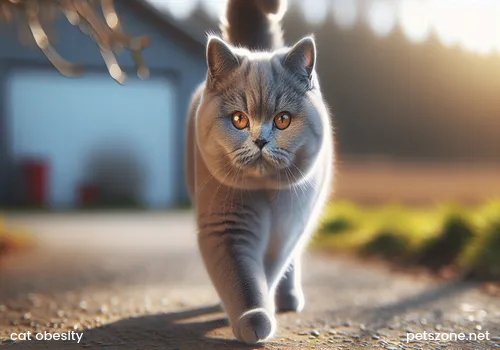
Which foods are the "behind-the-scenes pushers" for cat weight gain?
The fundamental reason cats become overweight is that the calories consumed exceed those burned. Certain foods, due to their ingredient characteristics, are more likely to cause caloric excess and unknowingly "expand" cats.
- High-calorie, high-fat cat food: Although some cat foods claim to help cats gain weight, if the cat has little activity, long-term feeding of high-calorie, high-fat cat food (especially dry food) easily leads to fat accumulation. Some dry foods have higher carbohydrate content, which may also cause uncontrolled appetite. When choosing cat food, pay attention to the nutrition label, and select formulas suitable for the cat's age, activity level, and physical condition.
- Excessive treats: Cat treats usually contain higher fat and calories than main meals. If given too many treats, even if the main food quantity is normal, total caloric intake will exceed limits. Treats can be used as rewards, but must be limited and deducted from the daily total main food calories. Imagine, for humans, grabbing a handful of chips may equal a cat’s entire meal!
- Human food: Many human foods we love are "sweet burdens" or even dangerous for cats. They usually contain excessive salt, sugar, fat, and seasonings. Long-term feeding not only easily causes obesity but may lead to digestive issues, diarrhea, and burden the liver or kidneys. For example, milk—many cats are lactose intolerant and will have diarrhea after drinking it. Even seemingly healthy meats are unsuitable if cooked with seasonings. Some human foods are toxic to cats, such as onions, garlic, grapes and raisins, chocolate, etc., absolutely must not be given to them.
- Feeding both wet and dry food without controlling total amount: Some people like mixing wet and dry food to provide more balanced nutrition, but if the total feeding amount is not carefully controlled, it’s easy to exceed calorie intake and cause weight gain.
Besides food, what other factors affect cat weight?
Besides diet, cats’ weight gain is influenced by other factors:
- Overfeeding or free feeding: If owners always worry about cats being hungry and provide unlimited food (especially dry), cats can easily overeat and gain weight. Like humans, the more cats eat, the faster food passes through their gastrointestinal tract, which actually lowers digestion efficiency.
- Lack of exercise: Indoor cats usually have much less activity than outdoor cats. If they eat more and move less, they naturally gain weight.
- Age: Middle-aged cats (8-12 years) are more prone to overweight than kittens or senior cats.
- Neutering: Post-neutering, cats’ appetites may increase, and metabolism rate decreases by about 20%, making them more likely to gain weight.
- Breed: Some breeds are naturally more prone to obesity, especially mixed breeds.
- Health issues: In very few cases, obesity may be related to certain diseases or medications, such as hypothyroidism.
What are the harms of cat obesity?
Although chubby cats look cute, obesity poses real threats to their health.
- Causes various diseases: Obesity significantly increases the risk of diabetes, heart disease, fatty liver, urinary diseases (such as bladder problems, stones), arthritis, and other conditions. Imagine, a chubby human is breathless climbing stairs—extra weight similarly puts huge pressure on cats’ joints and cardiopulmonary system.
- Impeded movement and lowered quality of life: Excess weight makes it difficult for cats to jump, run, or even groom themselves, leading to skin problems. This not only affects their daily activities but may cause depression and anxiety.
- Decreased immunity: Obesity damages cats’ immune systems, making them more susceptible to bacterial infections.
- Increased surgery and anesthesia risks: Obese cats face higher risks during surgery or anesthesia.
- Shortened lifespan: Long-term obesity quietly erodes cats’ health and may shorten their lifespan.
How to avoid excessive weight gain in cats?
Preventing cat obesity depends on scientific feeding and moderate exercise.
- Control food amount: Calculate daily calorie needs based on age, weight, neutering status, and activity level, and feed strictly according to this amount. Use measuring cups or digital scales for accuracy. Prefer scheduled measured feeding over free feeding.
- Choose appropriate cat food: Select nutritionally balanced cat food with high protein and moderate carbohydrates and fat. For cats prone to fat gain, consider weight management or low-calorie formula food.
- Feed treats cautiously: Treats should be rewards only and strictly limited to 10%-15% of daily total calories.
- Avoid feeding human food: Never feed cats human food scraps, especially high-fat, high-salt, or high-sugar foods. Even seemingly harmless foods may be harmful to cats’ health.
- Increase exercise: Spend time daily playing with cats using wand toys, laser pointers to encourage running and jumping. Set up cat trees, tunnels, etc., at home to expand their activity space and fun.
- Regularly monitor weight: Weigh cats weekly or biweekly to promptly detect weight changes and adjust diet and exercise plans accordingly.
Frequently Asked Questions
- My cat is too thin. Can I feed high-calorie food to help it gain weight? If a cat is underweight, first rule out parasites or underlying diseases. Under veterinary guidance, you can feed high-calorie, high-protein, easily digestible food like kitten food or specialized weight gain formulas. But increase weight gradually to avoid burdening the body. High-fat meats (like those with 20% fat beef, pork, or lamb) can be added in small amounts as supplements.
- I heard wet food makes cats gain weight faster than dry food—is that true? Not really. Wet food usually has higher water content and fewer calories per serving than dry food. Some believe wet food helps control weight by increasing satiety. The key is controlling total calorie intake; overeating either dry or wet food leads to obesity.
- My cat always begs for food, what should I do? Cats may beg due to habit, boredom, or learned behavior. Try splitting daily measured food into multiple portions or use slow-feeding bowls and puzzle feeders to increase the challenge and fun of getting food. Also spend more non-meal time playing to distract them.
In summary, maintaining a healthy weight is the foundation of a happy life for cats. As responsible owners, we must stay vigilant against food “traps” that easily cause weight gain, feed scientifically, encourage exercise, and ensure our “masters” enjoy a healthy and joyful life.
